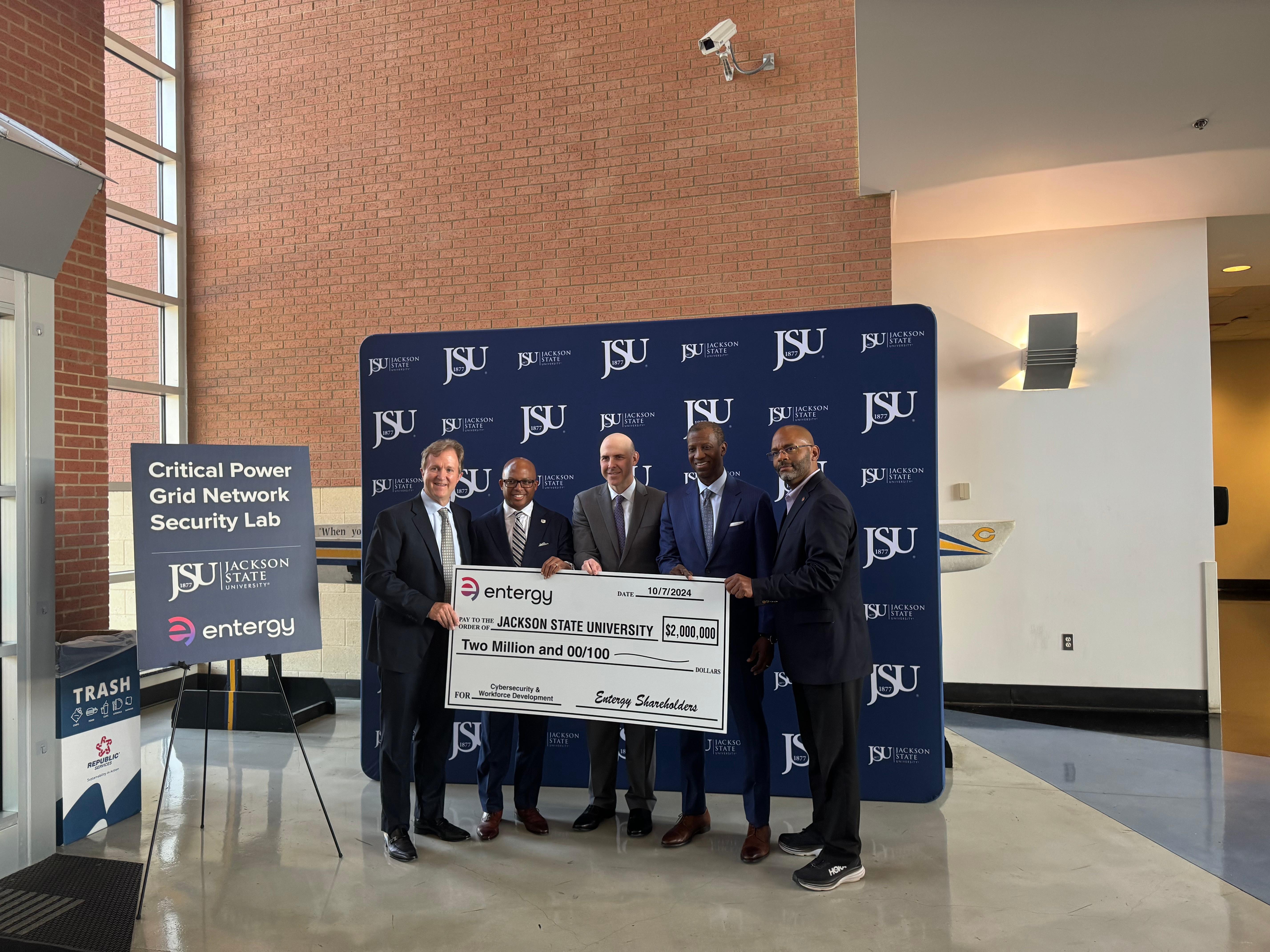A $2 million dollar grant from the Entergy Charitable Foundation will fund the creation of the Critical Power Grid Security Lab at Jackson State University. This lab will train students to enter the workforce as cybersecurity experts in nuclear, energy, electricity and natural gas sectors. This new initiative could help train students to protect power grids from getting hacked.
Haley Fisackerly is the president and chief executive officer of Entergy Mississippi.
“This is a great partnership between Entergy, Jackson State and to help the region,” he said. “It’s an opportunity to focus on a critical area that we need in our workforce today. We're all dependent on technology. We use it in every aspect of our business. And we hear a lot about cyber threats. Today this partnership, the funding will go to create a lab, internship opportunities, and to give students real world experience so they can enter the workforce.”
Students will learn how to prevent disruptions and restore critical computer systems following significant cyber events. The lab will also enable students to perform research and have direct experience monitoring cyber networks and infrastructure.
The president of JSU, Marcus Thompson, said the grant represents another step forward for the university.
“This gift will have a lasting impact on the lives of our students and the future of the energy sector,” he said. “Looking ahead, this lab will not only benefit Jackson State University and our students, but will also play a critical role in shaping the broader energy landscape. And as we address growing global concerns about cyber security, we are preparing our students to lead the charge in securing the power grids and infrastructure that fuel our nation.”
Wilbur Walters is dean of the College of Science, Engineering and Technology at JSU. He said the fact that JSU will be able to build a workforce in the energy sector is very important.
“This is saying that [at] Jackson State, we're not only working in the area of science and engineering, but we are also working in the advanced areas of science engineering,” he said. “So I see a very bright future for what we're doing here at Jackson State.”
Walters anticipates having 400 to 500 students in the program over the next few years.




